The recent conviction of a rich and powerful Nigerian politician in a UK court for laundering stolen assets and news that Nigerian lawmakers are studying the elimination of its two main corruption-fighting commissions has left many members in the mighty West African country’s civil society with mixed feelings. On one hand it’s good to see […]
Nigeria: Government must defend rule of law and prosecute officials who commit fraud

Who owns what? Trying to clean dirty money in the EU
How do you fancy owning two Bugatti Veyrons, the fastest and priciest street car in the world, with a top speed of 250mph and a cost of €1m a pop? Or how about splashing out €18m on art formally owned by French fashion designer Yves Saint Laurent? How about affording all of this on your […]
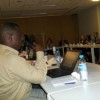
Will the fruits of Africa’s commodity boom be lost to corruption?
As the prices of oil and other non-renewable commodities begin to soar once again, anti-corruption activists from DR Congo, Ghana, Liberia and Zimbabwe were in Brussels last week with the message that there is a once-in-a-generation opportunity to get their economies on a sustainable development path, a path that has been blocked by corruption in […]

Power failure in Zimbabwe – taking to the street against corruption
***Since this blog post was first published, the text has been modified to note that the date of the march was moved from 24 March to 31 March*** In Zimbabwe, corruption is a daily burden all citizens have to carry: be it the bribes they pay or the disastrous public services they receive. When it […]
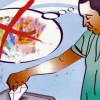
Leaders out of touch? Elections in Senegal
Senegalese citizens voted in presidential elections yesterday after weeks of violent protests against incumbent President Aboulaye Wade’s effort to win a third term. Forum Civil, Transparency International’s chapter in the country has been working against the issues that threaten Senegal’s status as an established democracy. The following article was first published in the Huffington Post […]
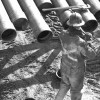
EU on the cusp of extractive transparency reforms
A newly discovered diamond field in Cameroon might contain as many as 250 million carats – 2.5 times the total world output of diamonds in 2007. The nearby village of Mparo, meanwhile, lacks running water, asphalt roads or telephones. Its mud-brick schools lack benches or books, No electricity flows through its power lines. An electrification […]
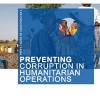
Haitians fighting corruption
Marilyn Allien, the head of Transparency International’s chapter in Haiti just gave an interview on their work, including the hotline they set up to receive complaints. Read the full interview on AlertNet. Earlier this month marked two years since a massive earthquake devastated the country. Read Marilyn’s blog marking the day, and describing the corruption […]
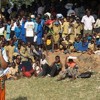
Rural Rwandan communities fight corruption
In the light of the recent and considerable improvement of Rwanda’s perceived level of corruption as being one of the least corrupt countries in Africa, it is interesting to see how our National Chapter in the country is contributing to this positive change. This article presents a grassroots approach which focuses on empowering citizens and […]

Des communautés rurales au Rwanda luttent contre la corruption
Le Rwanda est perçu comme un des pays les moins corrompus d’Afrique. En vue de cette amélioration considérable, il est intéressant de regarder comment notre Section Nationale dans le pays contribue à ce changement positif. Cet article présente une approche au niveau local qui responsabilise les citoyens, et exerce de la pression sur les décideurs […]
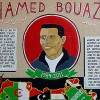
The Arab Spring: one year on – part two
The following is an excerpt from an article published by the Huffington Post. A year ago, Tunisians were in the process of bringing down a corrupt leader. It all started on 17 December 2010 when Tunisian fruit-seller Mohamed Bouazizi set himself on fire outside the building of the local officials who had abused him. With […]
- State Capture in South Africa 14 February 2017
-
 What’s next for Ukraine?
16 December 2016
What’s next for Ukraine?
16 December 2016
-
 Cleaning up sport: conflicts of interest at the top
9 December 2016
Cleaning up sport: conflicts of interest at the top
9 December 2016
-
 OGP: France must do more to tackle corruption
9 December 2016
OGP: France must do more to tackle corruption
9 December 2016
-
 Pharma companies in Slovakia: Uncovering conflicts of interest
9 December 2016
Pharma companies in Slovakia: Uncovering conflicts of interest
9 December 2016
-
Nokubonga Ndima: Young people can make a change for a better future...
-
Benjamin M: Very good article! Congrats!...
-
arun kottur: In India sports minister was involved decades are ...
-
Ekonomi: Very beneficial article. Thank you very much. htt...
-
ksweeney1: I do not agree that https://apex.aero/2016/09/22/g...
Search
Categories
Latest news from Transparency International
No items, feed is empty.

 Connect with us on Facebook
Connect with us on Facebook Follow us on Twitter
Follow us on Twitter